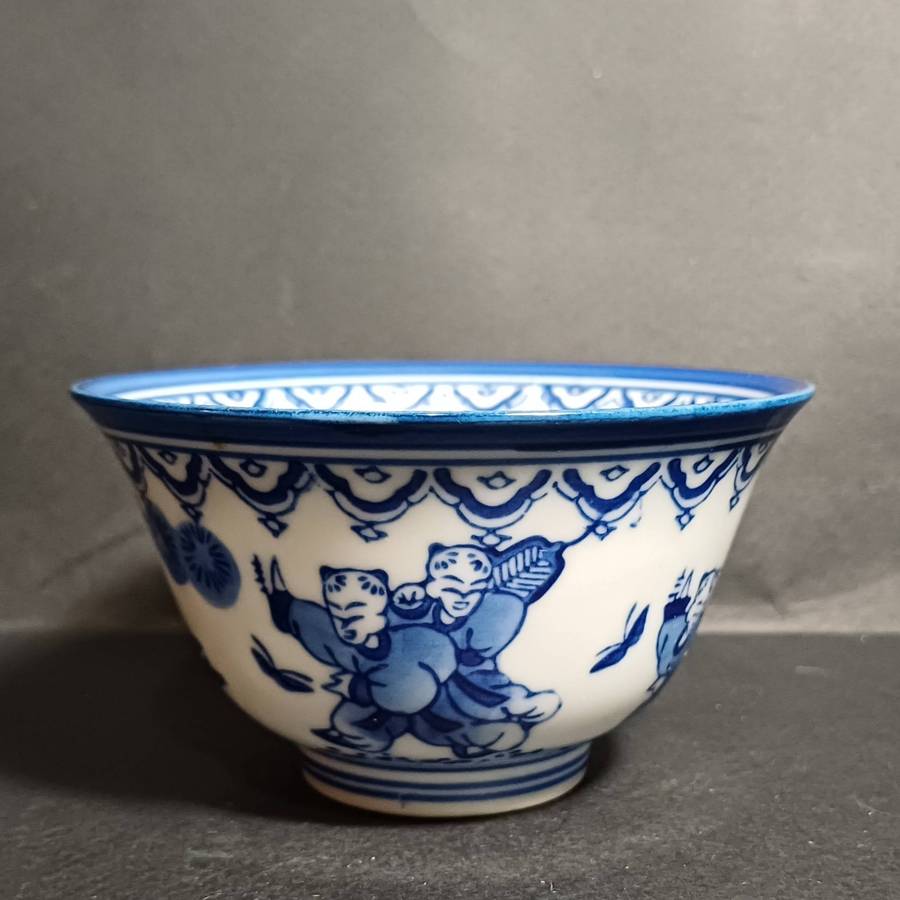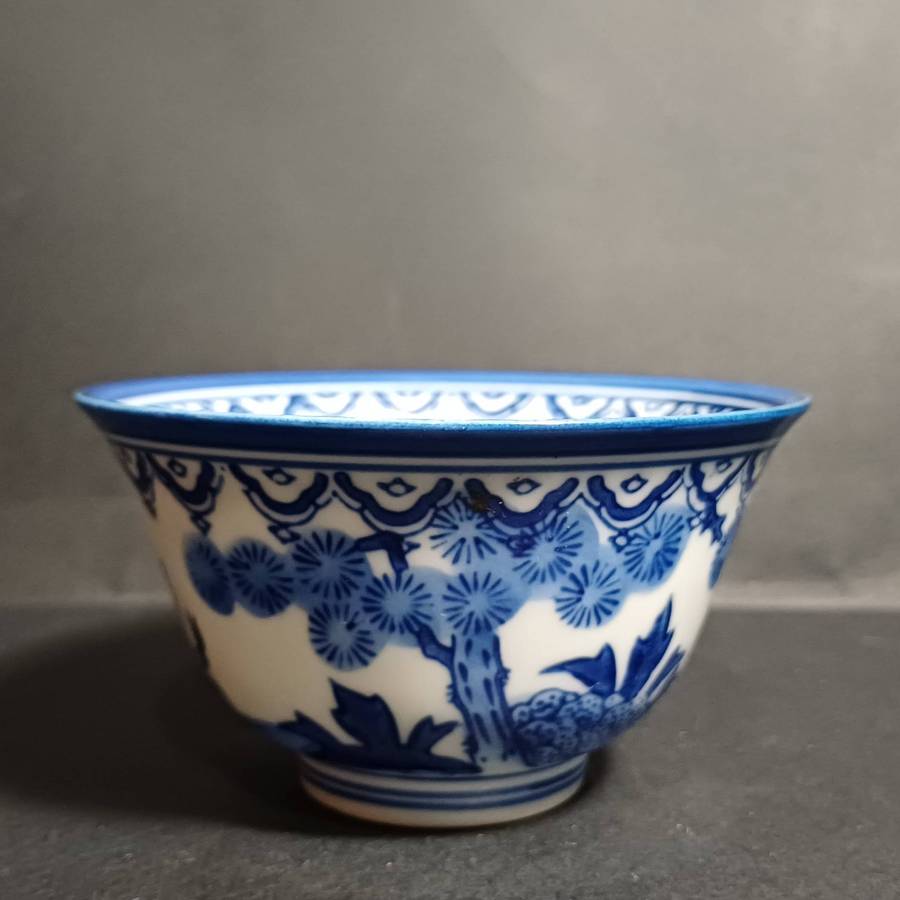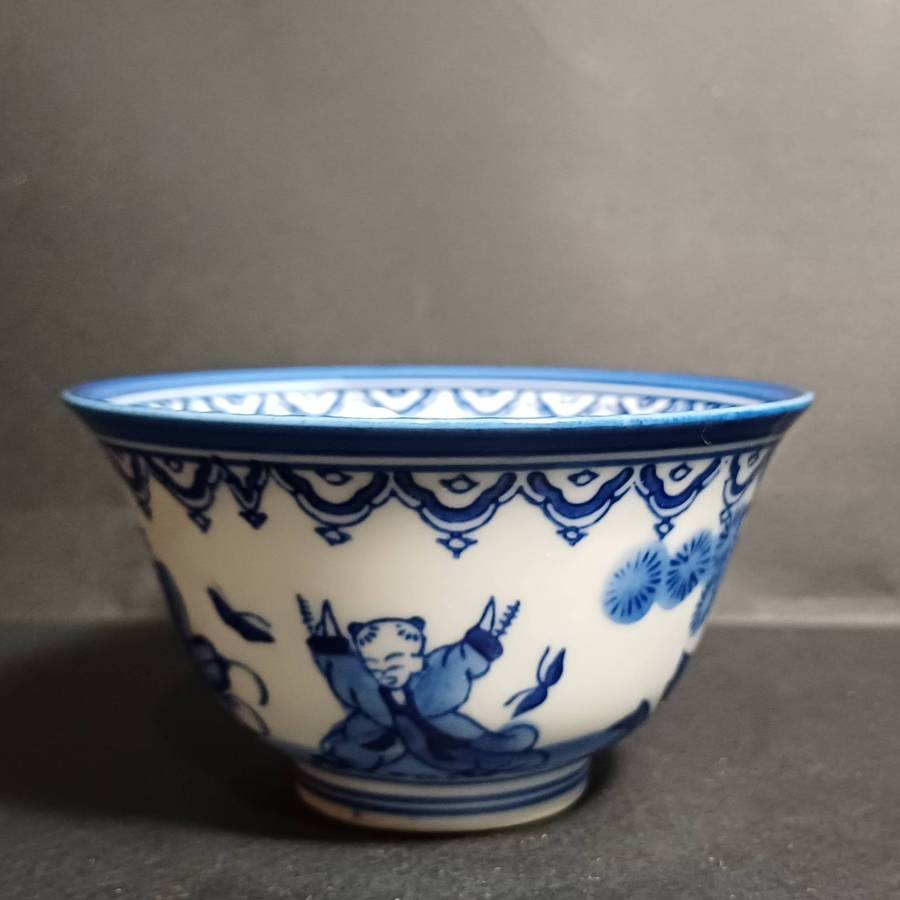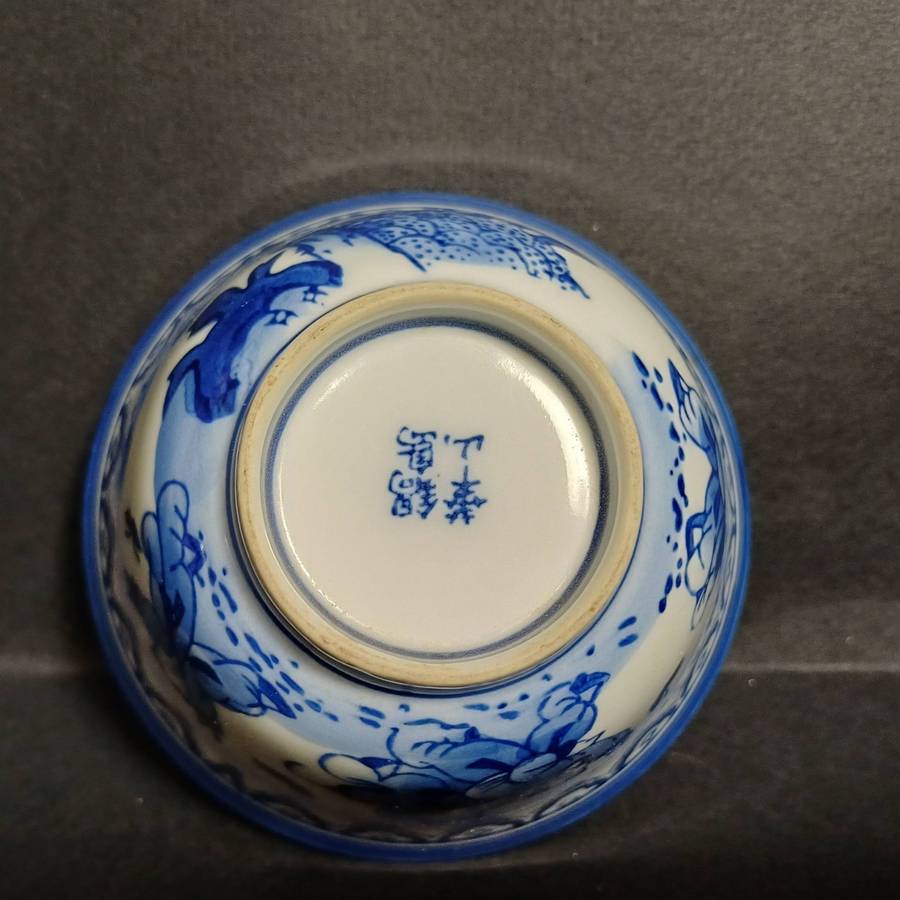













Antique Japanese Arita Ware - Nabeshima Style Sometsuke Karako Porcelain Tea Cup
Check my rate
View locations
| Main centres: | 1-3 business days |
| Regional areas: | 3-4 business days |
| Remote areas: | 3-5 business days |














| Main centres: | 1-3 business days |
| Regional areas: | 3-4 business days |
| Remote areas: | 3-5 business days |
Time Period: Late Edo to Meiji Period (c. 18501912)
Origin: Arita, Hizen Province, Japan
Description:
A beautiful and authentic piece of Japanese Arita-yaki (Arita ware) porcelain, decorated in classic underglaze cobalt blue (sometsuke). This small cup (yunomi or tea bowl) features the revered Karako (Chinese Children) motif, a popular design in Japan symbolizing longevity, health, and family prosperity.
The design is a direct continuation of styles prized during the Edo Period (1603-1867). The specific use of the kiln/maker mark on the base (likely "Yamaki Sei") points to the rise of commercial production during the Meiji Period (18681912), when Arita porcelain was actively reviving its export trade.
Motif: Karako children playing, pine tree (symbol of longevity), and butterflies.
Glaze: Crisp white porcelain with vibrant blue underglaze decoration (sometsuke).
Condition: Excellent antique condition. No chips, cracks or grazing.
Mark: Underglaze blue four-character mark (likely a kiln or maker name) on the base.
Approximate Dimensions:
Height: 5 cm
Base Diameter: 4 cm
Rim Diameter: 9.5 cm
Please note that we securely package all items for shipping, to ensure their safe arrival.